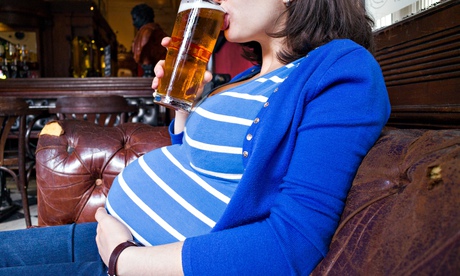
Should women who drink excessively while pregnant be criminalised? That question is at the root of a legal test case whose ruling is expected later this month: it concerns a seven-year-old child with foetal alcohol syndrome (FAS). Lawyers acting on her behalf are arguing that she is entitled to a payout from the government-funded Criminal Injuries Compensation Scheme because her medical condition is directly linked to her mother’s drinking habits during pregnancy.
Since in UK law foetuses have no rights, it’s hard to imagine that compensation will be granted – to do so would change the whole basis of the way the unborn are regarded in our society. But leaving that aside, and given that FAS is entirely preventable, and leaves a child with a severely compromised life, is this something we should be open to rethinking?
Almost certainly the answer is no. Here’s why: it simply won’t help. Because criminalising mothers does nothing for their babies, and could go a long way to making the lives of both the mother and her child much worse. Pregnant women with a drinking problem – like anyone with a drinking problem – need support rather than censure. Anyone who has the welfare of the child at heart, rather than the punitive desire to teach someone a lesson, can surely see that.
The fact is that where women feel well supported, where they are cared for, and where they are psychologically healthy, the general pattern is that they go out of their way to ensure every protection possible for their unborn babies. Mothers-to-be avoid shellfish and turn down unpasteurised cheese as a matter of course – the only reason many of them continue to drink a little alcohol is that no research has ever found that small amounts are harmful.
How, then, could it possibly be of benefit to protect tomorrow’s children by taking a retrospective approach to the problem of FAS, criminalising women who have delivered a baby after a pregnancy in which they drank to excess, and possibly even those who have yet to give birth? These women, like their babies, are among the most vulnerable people in our society. The reason they are drinking so much alcohol is because of other, hugely significant, problems in their lives: poverty, mental illness, housing difficulties, domestic violence, loneliness.
In parts of the US, where criminalisation has gone ahead and women have sometimes been imprisoned for drinking or drug-taking during pregnancy, there has been no reduction in the incidence of the problem. Preventing FAS isn’t a legal issue; it’s a public health one. And supporting women and girls so they do not become heavy users of alcohol, or supporting them to reduce its use if they are already affected, is the way forward. Blaming mothers for their child’s situation is a simple, and to some people attractive, way of looking at all sorts of problems – but it’s not fair, it’s not thoughtful, and it’s not kind.
Of course parents have special responsibilities in how a child is brought into the world and raised. But the wider community also has a responsibility to that child; and, just as it does for the parents, that begins before the child is even conceived.
Caring for the young women who will become tomorrow’s mothers, and making sure they have the support they need when their lives are tough, are the ways in which we prepare them for the task – and the way we reduce the chances of them becoming alcohol or drug users.
Pregnant women who are drinking excessively will always need support if they are to be helped to stop. This is no easy task. To add to the difficulty, FAS itself is an extremely complex condition: while the babies of some mothers who drink to excess will exhibit symptoms, others exposed to similar amounts of alcohol will appear entirely normal. It’s likely that, as with other health problems associated with alcohol use, issues including an individual’s nutritional status, genetic makeup and general health are highly significant. In other words, there is no line in the sand on alcohol in pregnancy – and it will be impossible for judges, any more than it is for doctors, to draw one.
The simple advice now given to pregnant women by the Department of Health is to avoid alcohol while trying for a baby, and while pregnant. That seems a sensible approach, and for a woman whose life isn’t being hugely compromised by some other overwhelming difficulty, it’s probably a fairly easy measure to put into place. For the challenged minority, though, real support and help is needed – and labelling them criminals will do absolutely nothing to restore their health, or to protect that of their babies.

